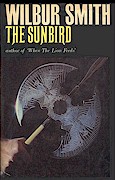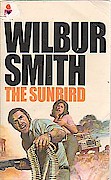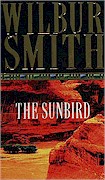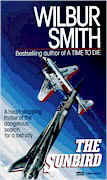 |
When Wilbur was still a small boy, he and his younger sister were taken by their
parents to visit the world-famous ruins of Zimbabwe. When the children were left
by themselves for a short time, Wilbur decided to play his favourite game:
frightening his sister with ghost stories. On this occasion, however, the game
backfired. The ruins of the ancient city worked on his imagination, conjuring up
their own ghosts. When the parents returned they found not only the little girl
but Wilbur, too, quaking in a corner.
It was this childhood event that sparked Wilbur's life-long
interest in Africa's confused prehistory. While hardly into his teens he was to
go into the bush with native gun bearers as his sole companions; he was to
listen to their stories; he was even, in later years, to become the close friend
of one of their most notable and wisest doctors, Credo Mutwa, the first Zulu
ever to tell the outside world the secrets and legends of his people.
The day came when suddenly the theories of the
archaeologists and the tales Smith heard around the campfires fitted together in
his mind. The experts who believed in a Carthaginian migration down the west
coast of Africa were right: the natives, with their stories of fair-skinned
invaders, proved it. Somewhere in the dead, dry centre of Africa there had once
been a flourishing civilization, sun worship, walled cities, biremes moving on
an inland sea...
So THE
SUNBIRD was born. It is a very personal story, growing out of the
author's fascination with Africa's past and his belief in the cyclic, repetitive
nature of history. Behind it lies copious research and also the questing,
this-s-how-it-must-have-been mind of a master story-teller.
|
![]()
![]()




![]()
![]()